Not sure about choosing a charger? Try our revamped Charger Finder!
Try our revamped Charger Finder!
- For Installations
- All our chargers come with a 1 year warranty
- Free Shipping
June 20, 2024
Background on level charging and level 2 EV charging
The expansion of electric vehicles, battery sizes and new models has led to the development of better, faster and safer EV charging. Electric vehicle (EV) charging has significantly advanced from the early days of slow trickle chargers, which were the initial steps in e-mobility. Nowadays, manufacturers are exploring various charging options, such as wireless and solar charging but these innovations are still many years away from being commercial realities. Despite these innovations, Level 2 chargers continue to be the preferred choice for most EV owners given the ease of adoption – a 240 volt plug receptacle is all that is required and these are often already available in the garage. This preference is unsurprising, given that Level 2 chargers offer an optimal balance of charging speed, convenience, and affordability.
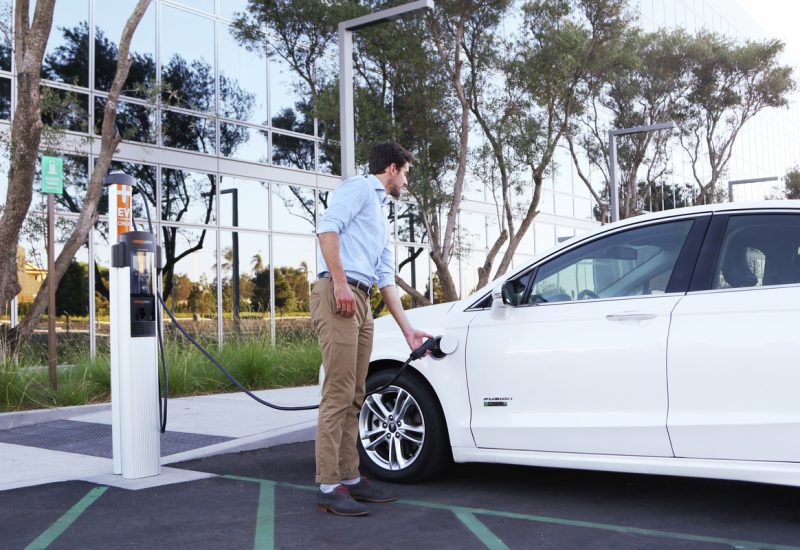
Level 2 EV chargers are the gold standard in EV charging. Level 2 chargers are a type of electric vehicle charging station that operate at a higher power level compared to standard Level 1 chargers and operate typically at a range of 208 to 240 volts depending on local supply. Unlike Level 1 chargers, which use a regular household outlet, Level 2 chargers require a dedicated charging unit and a 240-volt power source, commonly available in homes, workplaces, and public charging stations. These chargers provide a faster charging rate, making them an ideal choice for overnight charging. At AEFA, we supply many level 2 EV chargers with different plug receptacle types.
Level 2 EV chargers are the gold standard in EV charging. Level 2 chargers are a type of electric vehicle charging station that operate at a higher power level compared to standard Level 1 chargers and operate typically at a range of 208 to 240 volts depending on local supply.
Unlike Level 1 chargers, which use a regular household outlet, Level 2 chargers require a dedicated charging unit and a 240-volt power source, commonly available in homes, workplaces, and public charging stations. These chargers provide a faster charging rate, making them an ideal choice for overnight charging. At AEFA, we supply many level 2 EV chargers with different plug receptacle types.
The primary distinction between AC (alternating current) and DC (direct current) fast charging, lies in the type of current used to deliver power to the electric vehicle. Level 2 EV chargers utilize AC power, which is then converted to DC power within the vehicle’s onboard converter. This conversion process is more efficient for everyday charging needs and is cost-effective for both residential and commercial applications. DC fast chargers, on the other hand, provide direct current to the EV’s battery, enabling faster charging speeds but are generally more expensive and suited for rapid charging stations.
The charging speed of a Level 2 charger is significantly faster than that of a Level 1 charger. While Level 1 chargers typically provide around 3-5 miles of range per hour of charging, Level 2 chargers can deliver approximately 20-60 miles of range per hour, depending on the specific charger and the vehicle’s compatibility. This increased speed makes Level 2 chargers more practical for everyday use and long-distance travel.
| Level 3 Charger Output Power | Charger Time (hours) |
| 3 kW | 13.3 |
| 7 kW | 5.7 |
| 11 kW | 3.6 |
| 19.2 kW | 2.1 |
| 22 kW | 1.8 |
The charging time for Level 2 chargers varies based on the battery capacity of the electric vehicle and the power output of the charging station. For example, if an electric vehicle has a battery capacity of 40 kWh, it would take approximately 2 hours to fully charge the EV battery from empty using a 22 kW Level 2 charger.
Standardized EV charging connectors and plugs are crucial for ensuring compatibility between Level 2 chargers and electric vehicles. Several global standards have emerged, each with its unique design. Some prominent Level 2 charging connectors include:
The SAE J1772, commonly known as J1772, is the standard Level 2 charging connector used in North America. The J1772 connector has a power output of up to 19.2 kW, translating to about 18-28 miles of range per hour. This standard is widely adopted in the United States and Canada, and it provides a common interface for most electric car and plug-in hybrid models from various manufacturers, except Tesla vehicles.
Standardized EV charging connectors and plugs are crucial for ensuring compatibility between Level 2 chargers and electric vehicles. Several global standards have emerged, each with its unique design. Some prominent Level 2 charging connectors include:
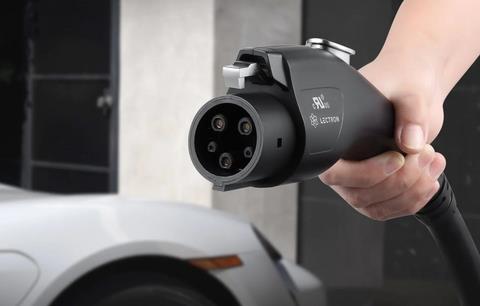
The SAE J1772, commonly known as J1772, is the standard Level 2 charging connector used in North America. The J1772 connector has a power output of up to 19.2 kW, translating to about 18-28 miles of range per hour. This standard is widely adopted in the United States and Canada, and it provides a common interface for most electric car and plug-in hybrid models from various manufacturers, except Tesla vehicles.
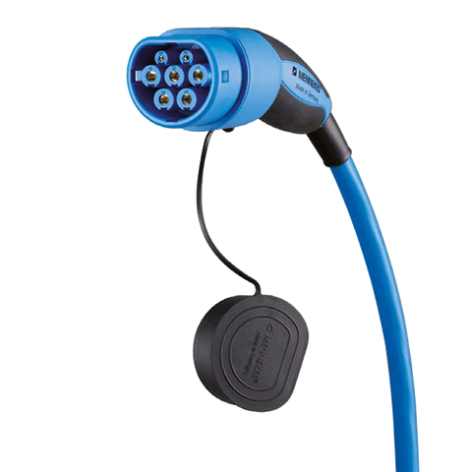
Mennekes, also known as Type 2, is a Level 2 charging connector that is prevalent in Europe, Australia, and select parts of the Middle East and Africa. This connector has a power output between 7.6 kW (32 Amp, single-phase, 230-volt) and 22 kW (32 Amp, three-phase, 400-volt).
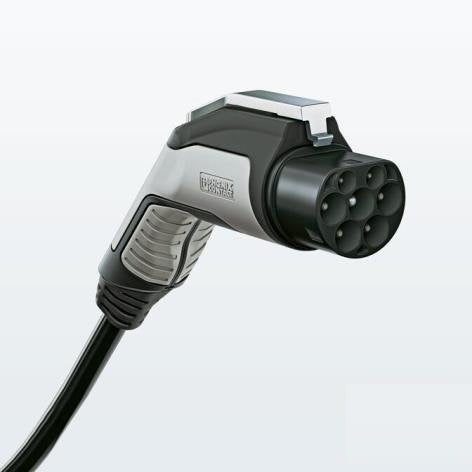
GB/T is the Level 2 charging standard used in China. It differs in both design and signaling when compared to the European Type 2 connector, despite having physical compatibility. Unlike the European Type 2 setup, GB/T 20234.2 employs a male connector and a female vehicle inlet. This connector has a power output of up to 7.4 kW with a single-phase input.
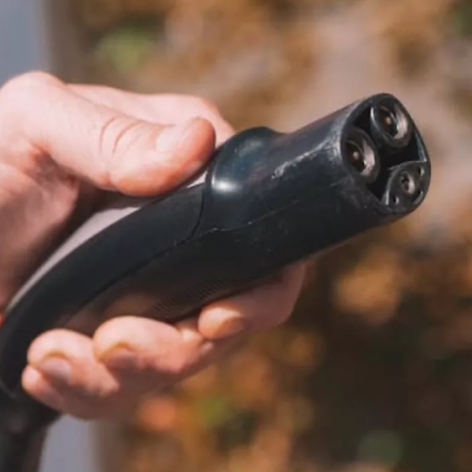
Tesla uses its proprietary connector for Level 2 charging in North America. Tesla electric cars come equipped with their own charging port, which is different from the J1772 standard used by other electric vehicle manufacturers in the region.
While Tesla provides adapters for J1772 charging, Tesla EV drivers typically use Tesla-specific charging equipment for optimal performance. The NACS can be used as both an AC or DC fast charger.
NACS will increasingly become the gold standard of EV charging in the U.S. and Canada. The major manufacturers will move to NACS. NACS also known as the SAE J3400 standard offers many advantages over J1772 EV charging. Level 2 EV charging speeds are unaffected, irrespective of J1772 or NACS.
The North American Charging System (NACS), standardized as SAE J3400, is an advanced electric vehicle (EV) charging connector system developed by Tesla, Inc. Used in all North American Tesla vehicles since 2021, NACS became available to other manufacturers in November 2022. This system is also backward compatible with Tesla’s pre-2021 proprietary connectors.
From May 2023 to February 2024, nearly all major vehicle manufacturers have committed to equipping their North American EVs with NACS charge ports starting in 2025. Additionally, several EV charging network operators and equipment manufacturers have announced plans to integrate NACS connectors into their infrastructure, including Electrify America.
Aside from the upfront costs of the home charging unit, there are several other expenses to consider when installing EV chargers, most importantly, your existing electrical setup. If you already have a 240-volt circuit available, a basic installation can range from $250 to $800. However, should you need a panel upgrade, you’re looking at anywhere between $1,500 and $3,000, including the hourly rate of the electrician. Federal tax credits of up to $1,000 and various state rebates can help offset installation expenses.
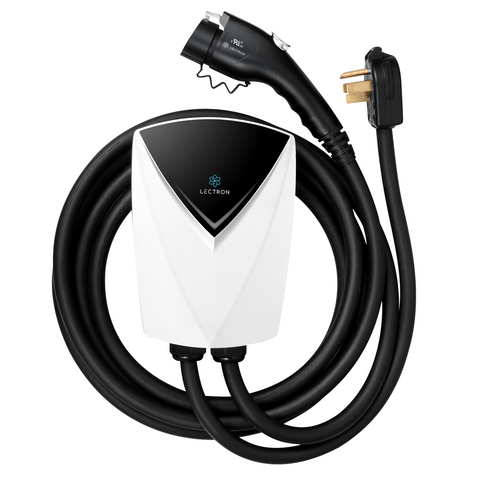
Permits, necessary to comply with federal, state, and local codes, can cost between $50 and slightly over $160. Adjusting your garage’s electrical setup might also incur additional costs, approximately $150 per square foot. Additionally, the choice between a hardwired or plug-in Level 2 EV charger affects the installation cost, with hardwired level 2 EV charging stations typically being more expensive due to their permanence and professional installation requirements. Opting for a portable charger could be a cost-effective choice, providing flexibility in installation options and delivering a practical range of 6 to 31 miles per hour.
Luckily, manufacturers like Lectron offer charging stations that can either be plugged directly into a NEMA 14-50 outlet or be hardwired into your home’s electrical system. The V-Box and V-Box Pro are Lectron’s flagship home charging stations that boast flexible installation options and adjustable charging rate based on your needs.
If you value portability but don’t want to sacrifice charging power, consider Lectron’s J1772 and Tesla Portable Level 2 chargers.
Permits, necessary to comply with federal, state, and local codes, can cost between $50 and slightly over $160. Adjusting your garage’s electrical setup might also incur additional costs, approximately $150 per square foot. Additionally, the choice between a hardwired or plug-in Level 2 EV charger affects the installation cost, with hardwired level 2 EV charging stations typically being more expensive due to their permanence and professional installation requirements.
Opting for a portable charger could be a cost-effective choice, providing flexibility in installation options and delivering a practical range of 6 to 31 miles per hour.
Luckily, manufacturers like Lectron offer charging stations that can either be plugged directly into a NEMA 14-50 outlet or be hardwired into your home’s electrical system. The V-Box and V-Box Pro are Lectron’s flagship home charging stations that boast flexible installation options and adjustable charging rate based on your needs.
If you value portability but don’t want to sacrifice charging power, consider Lectron’s J1772 and Tesla Portable Level 2 chargers.
Level 2 chargers offer a balance between charging speed, convenience, and cost, making them a popular choice for both residential and public charging infrastructure. Let’s explore how Level 2 chargers compare to other charging alternatives:
Comparatively, Level 2 chargers strike a balance between charging speed and installation costs, making them a practical choice for both residential charging networks and public charging infrastructure.